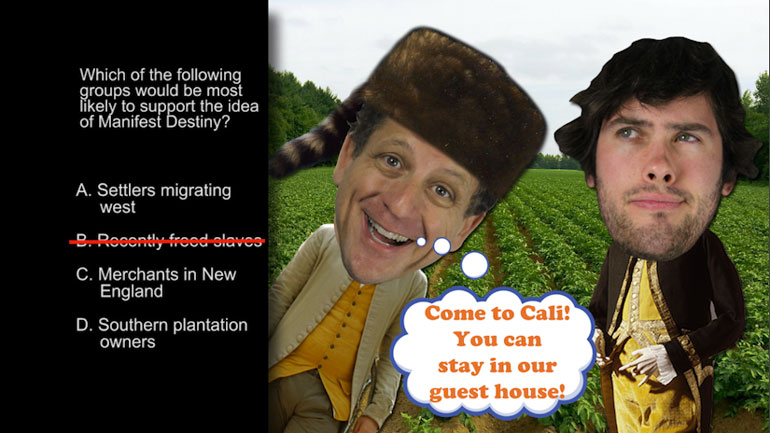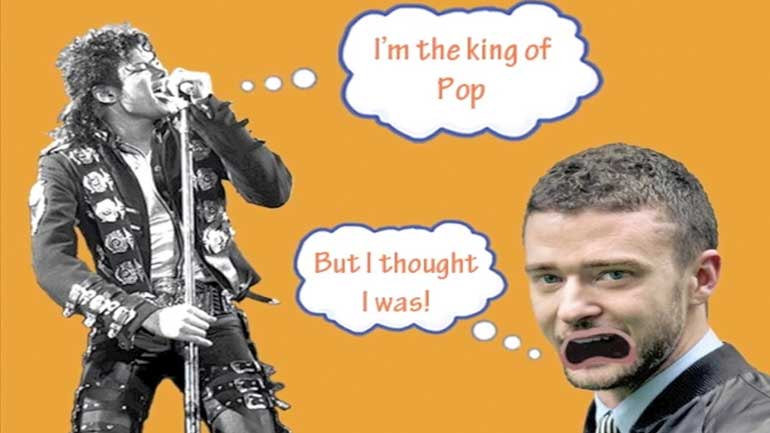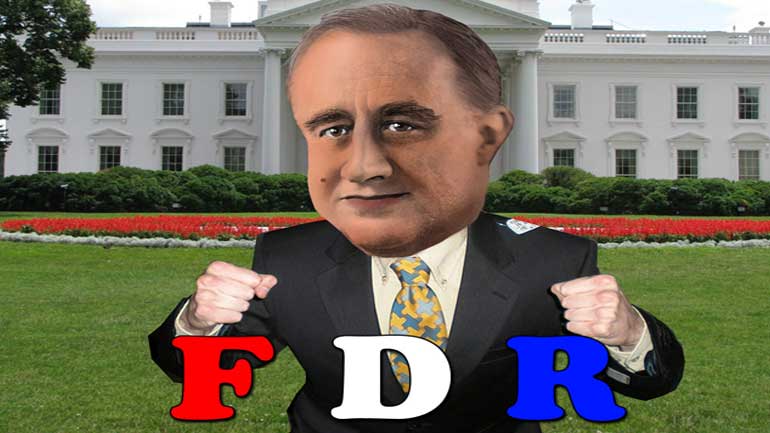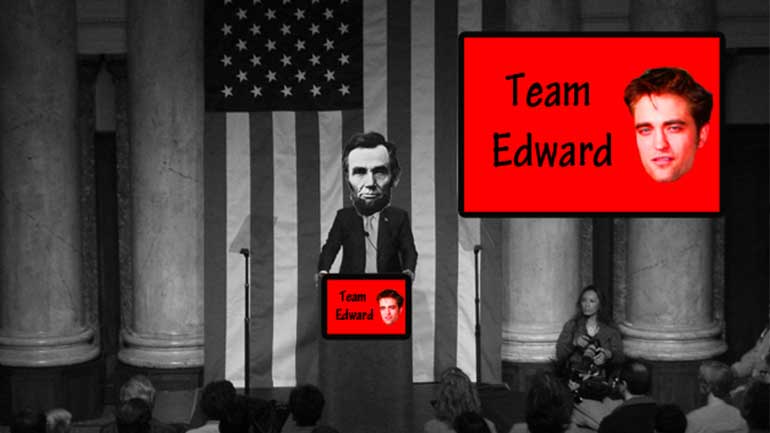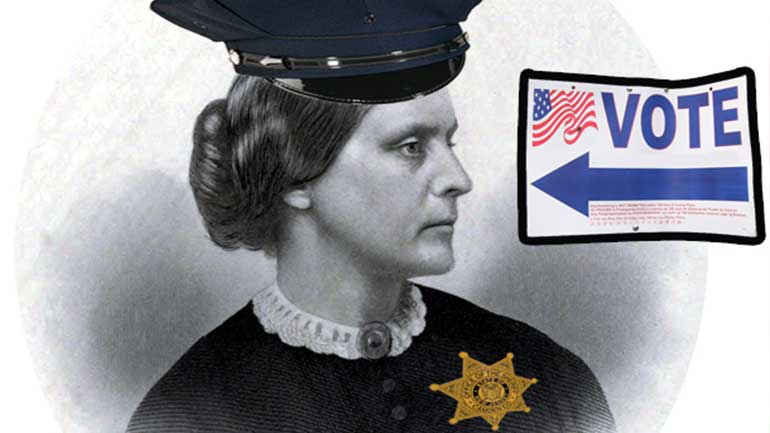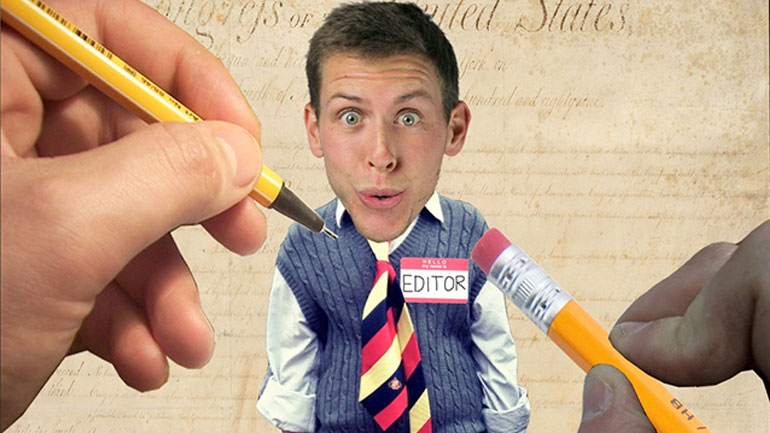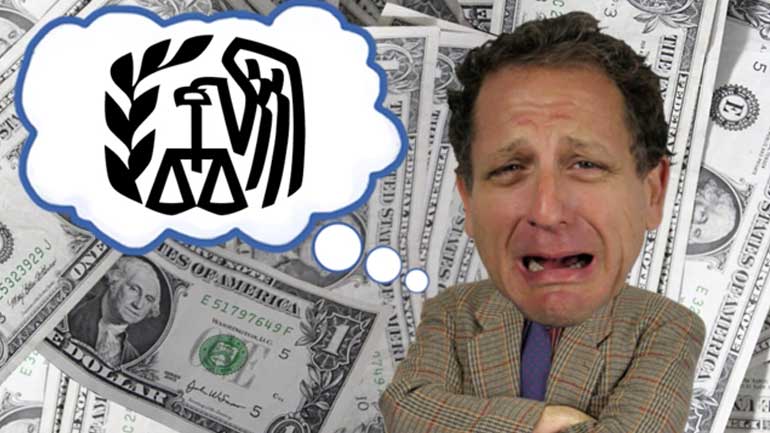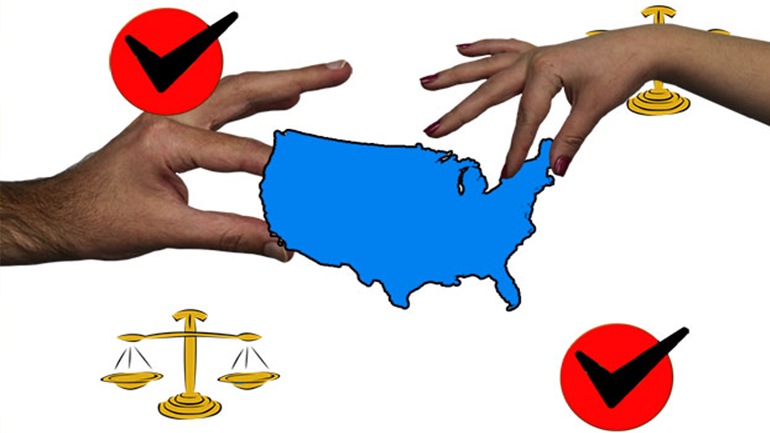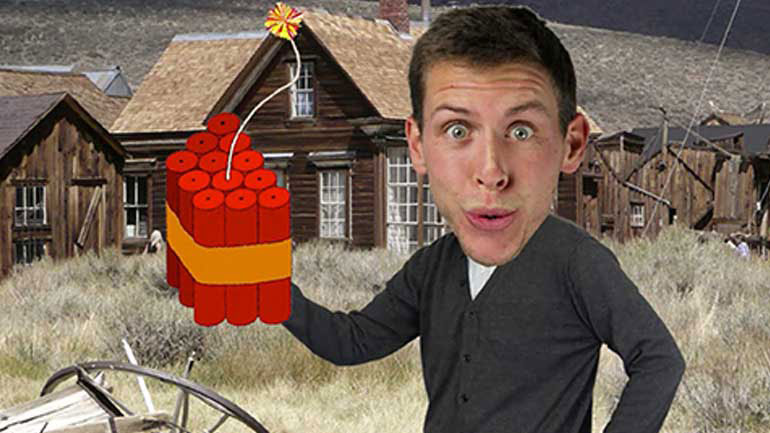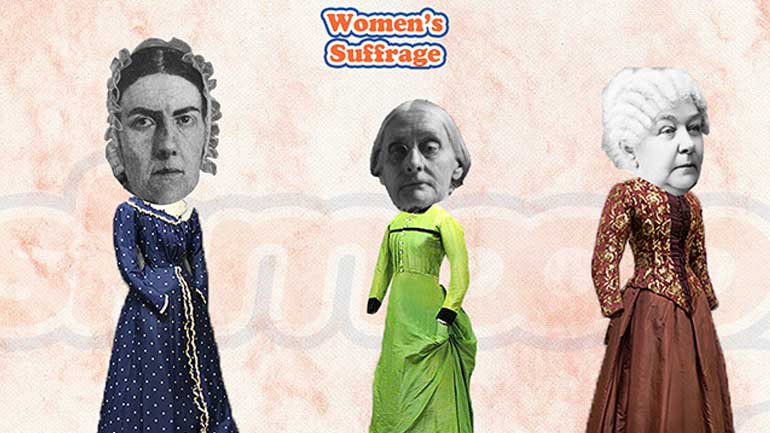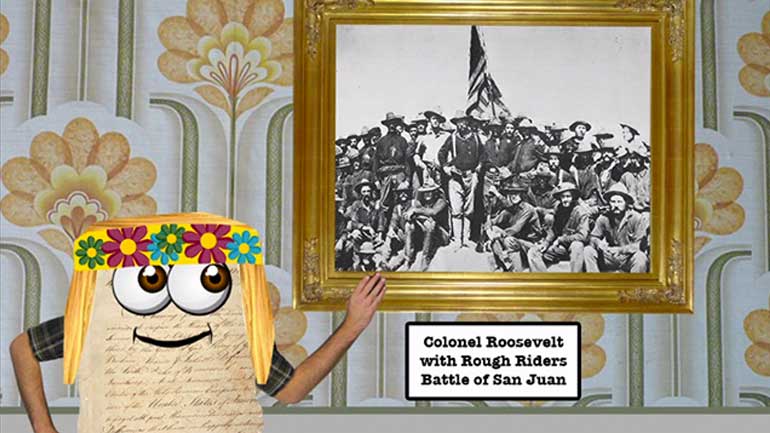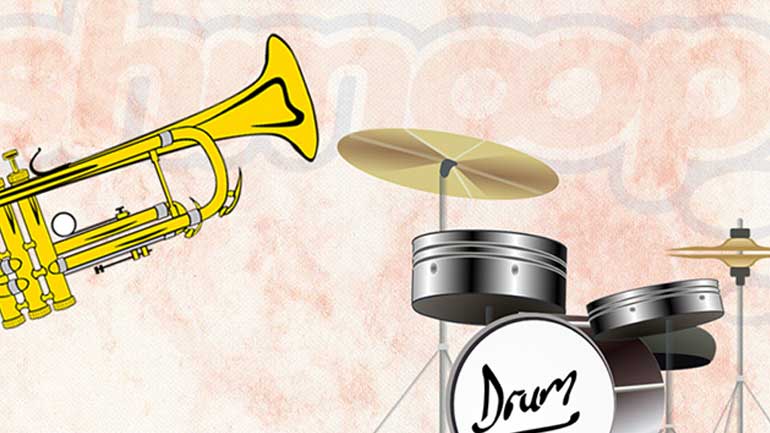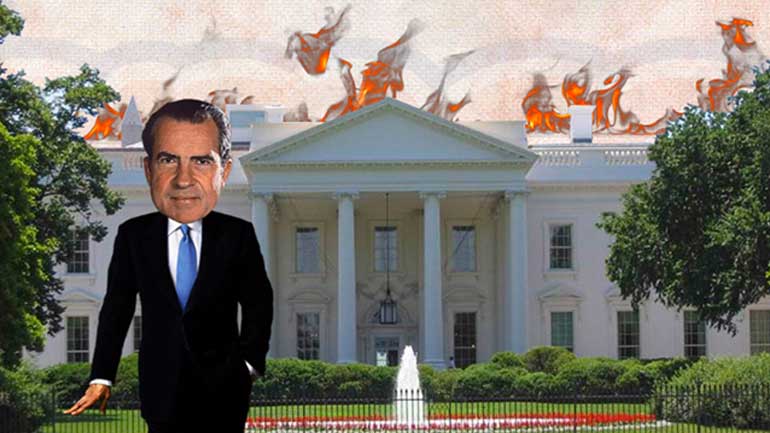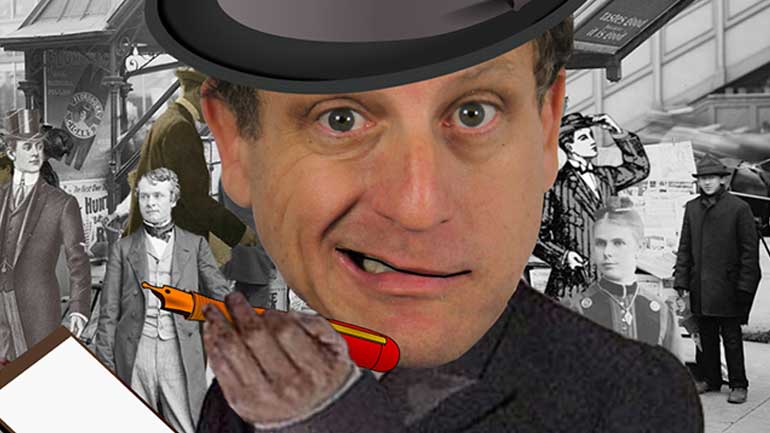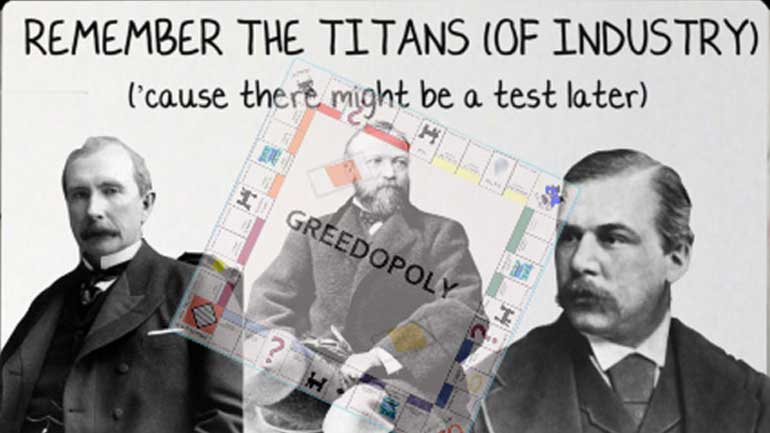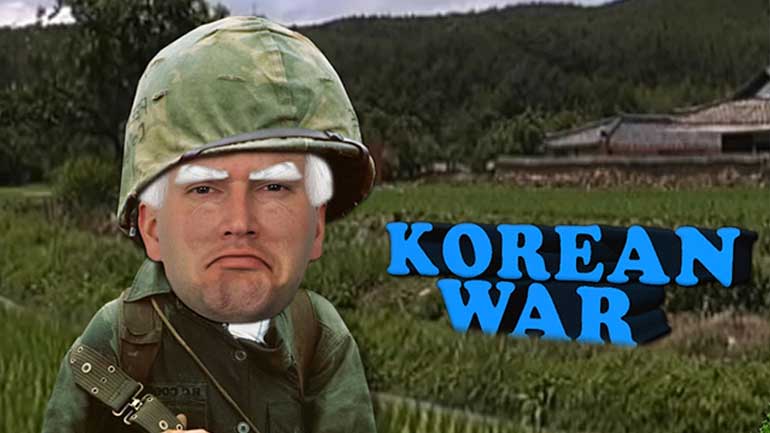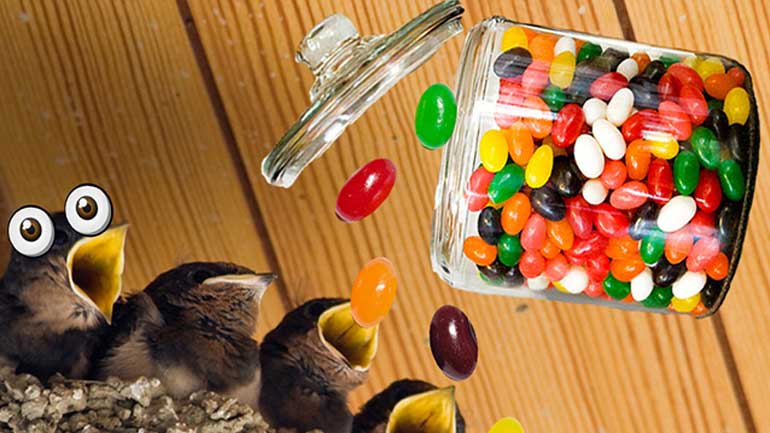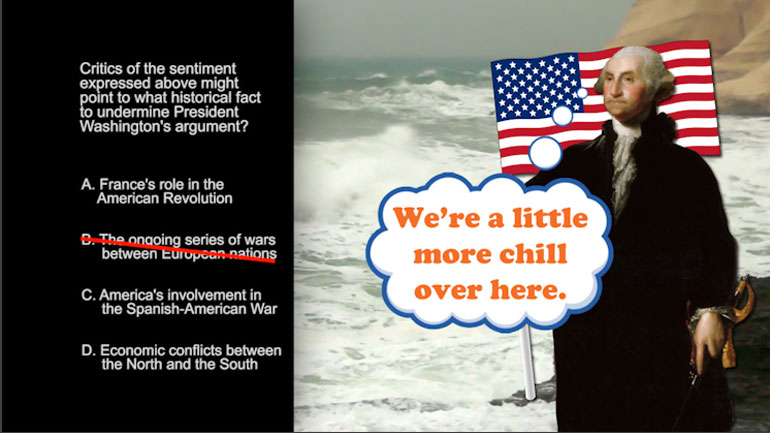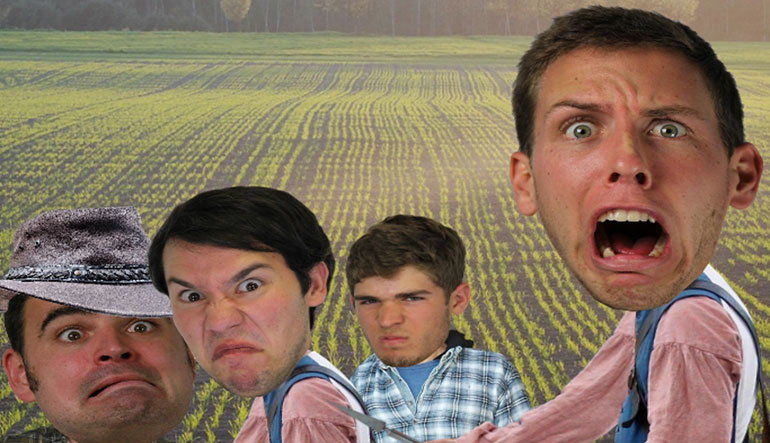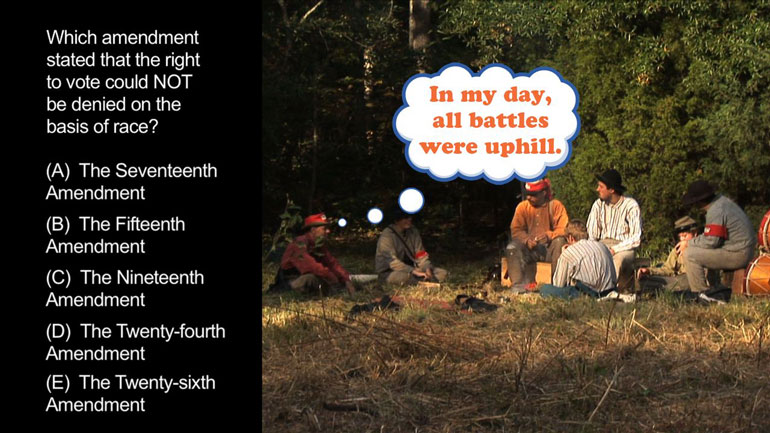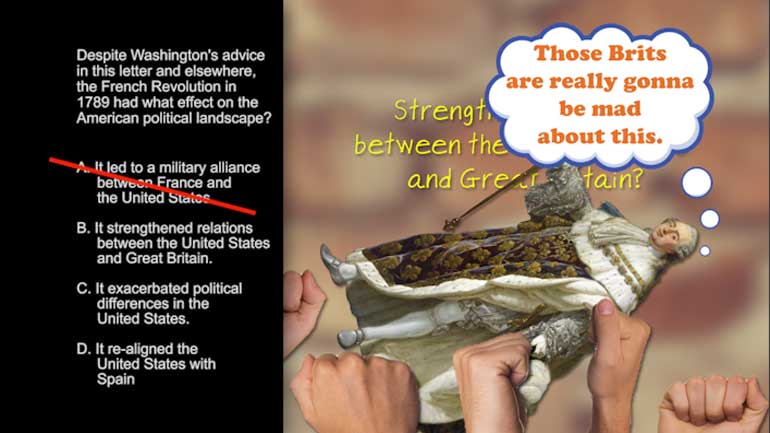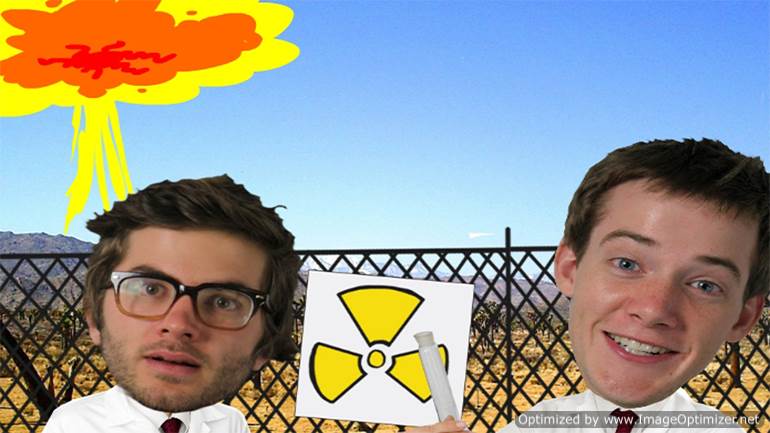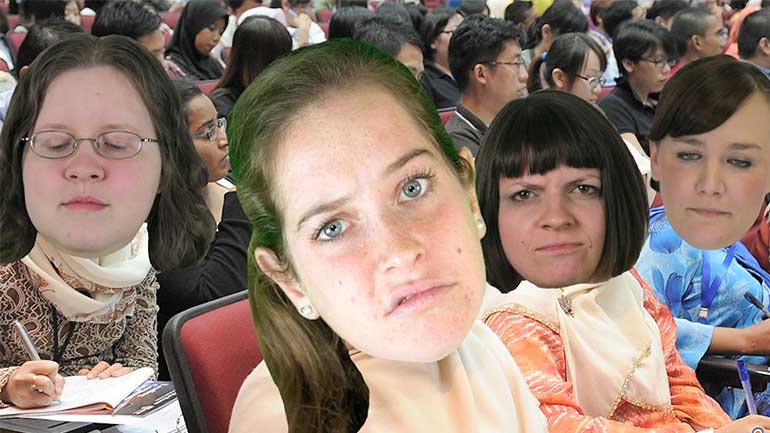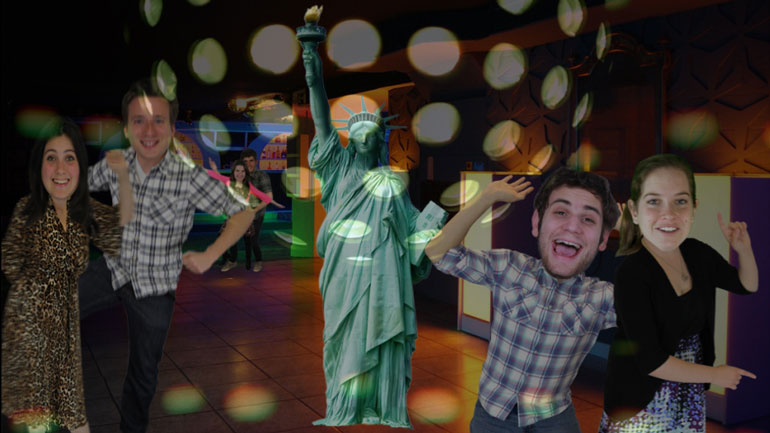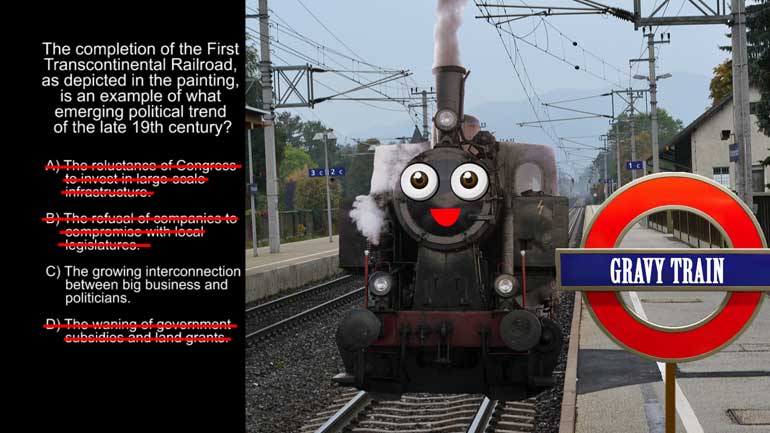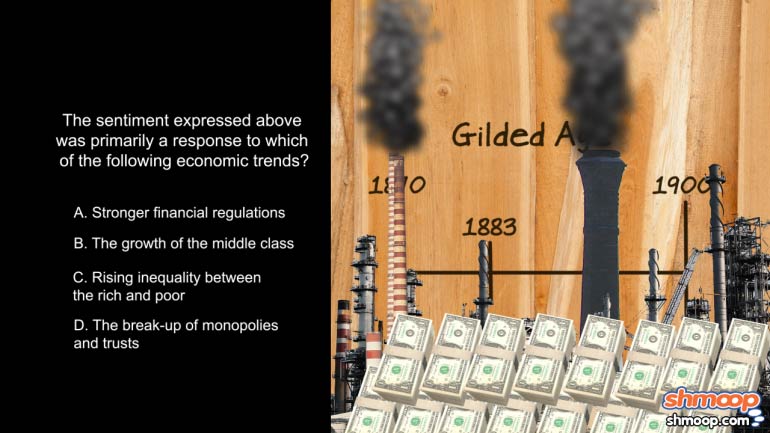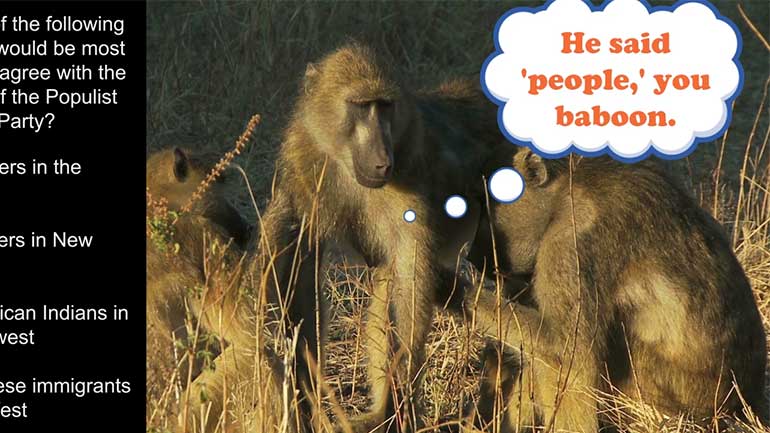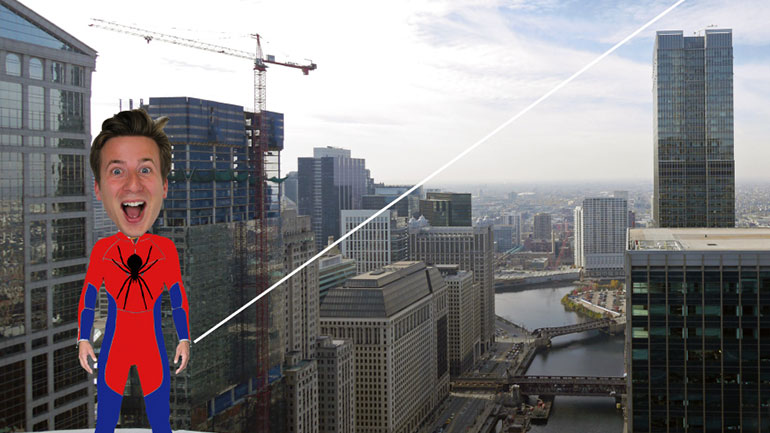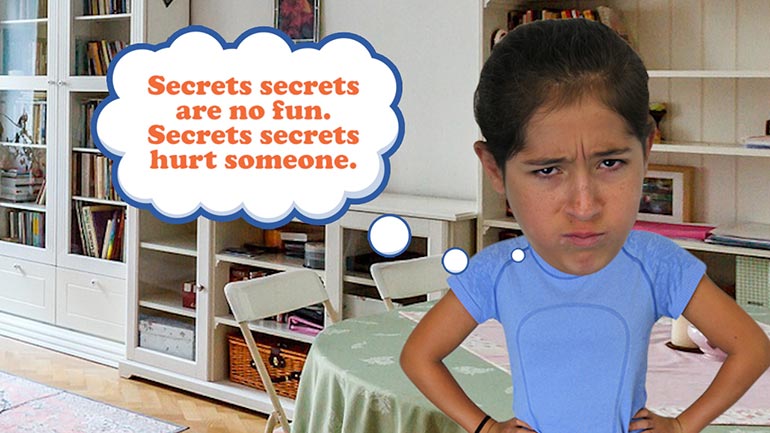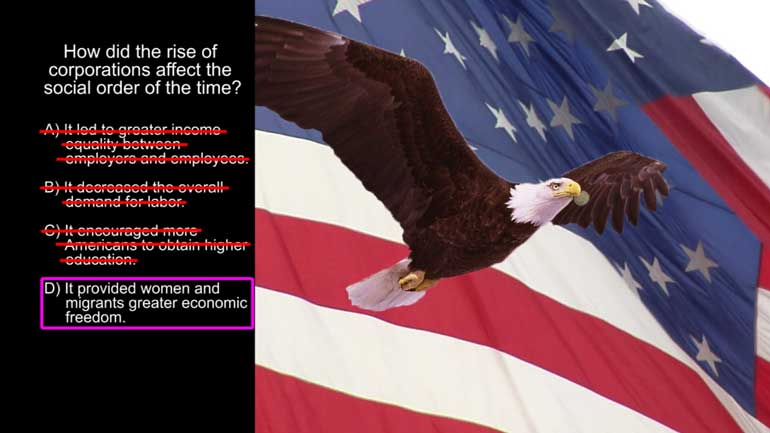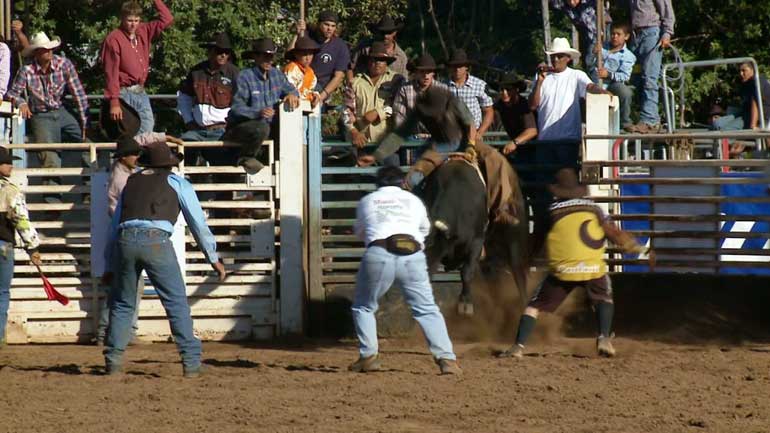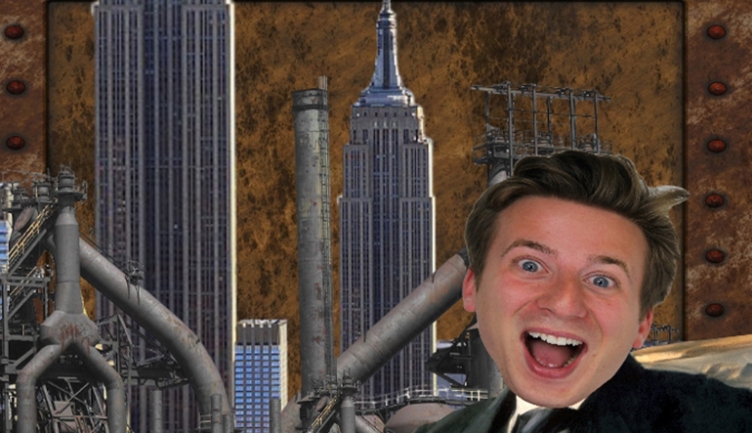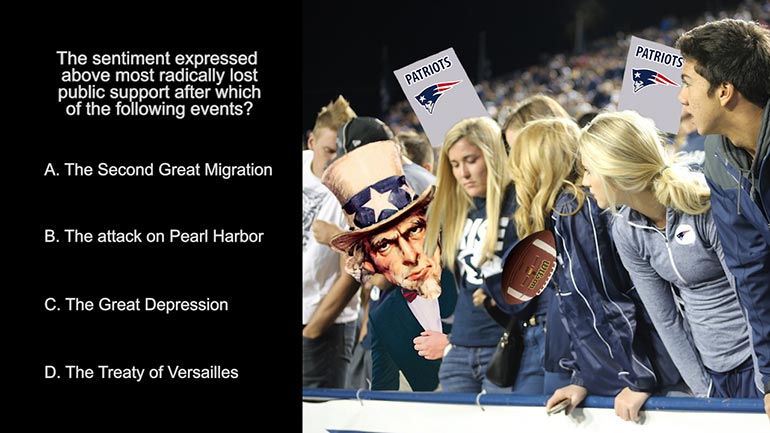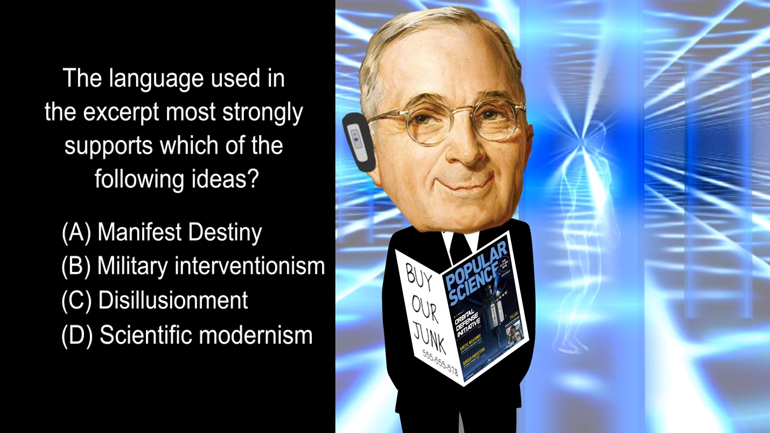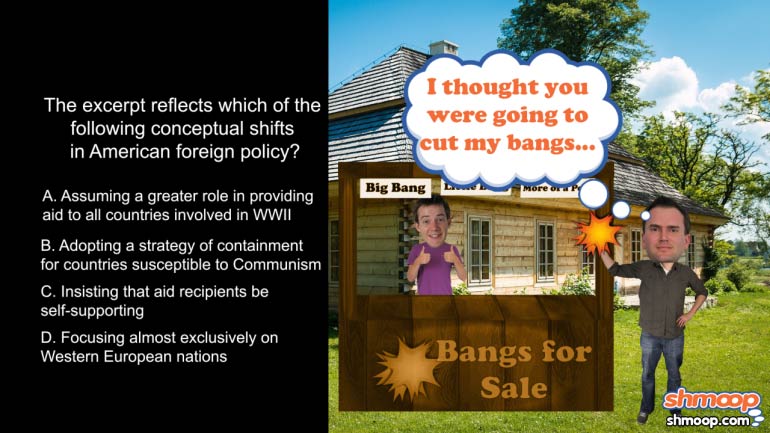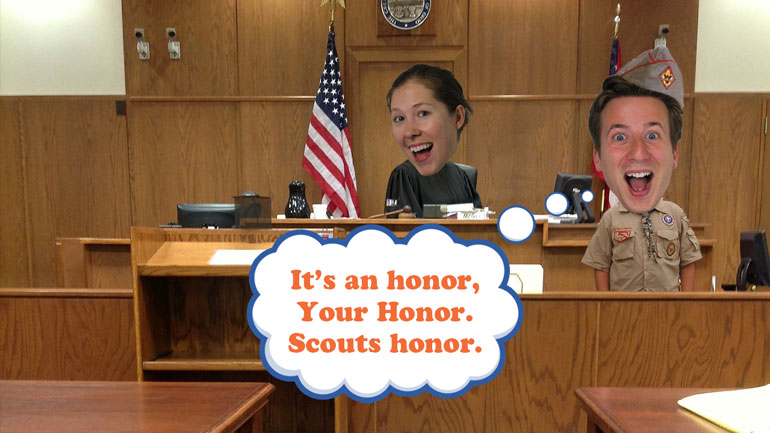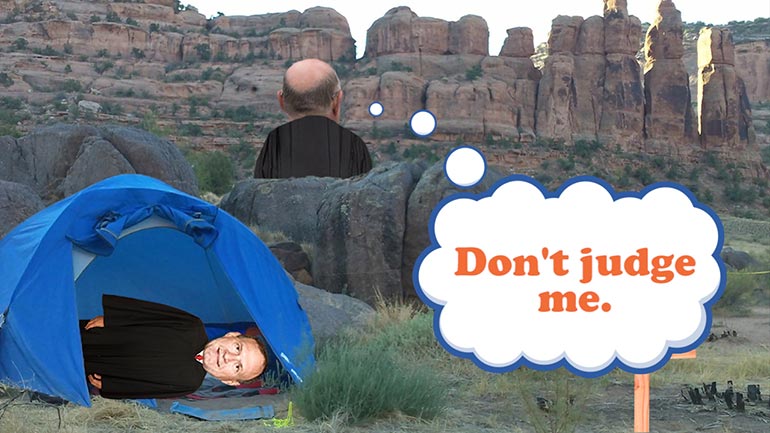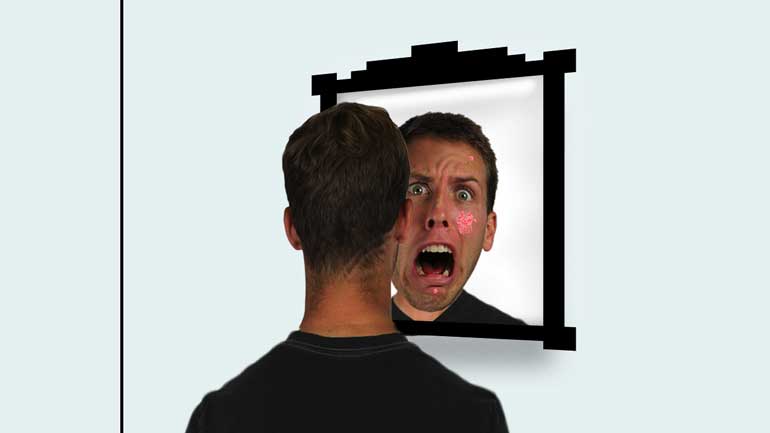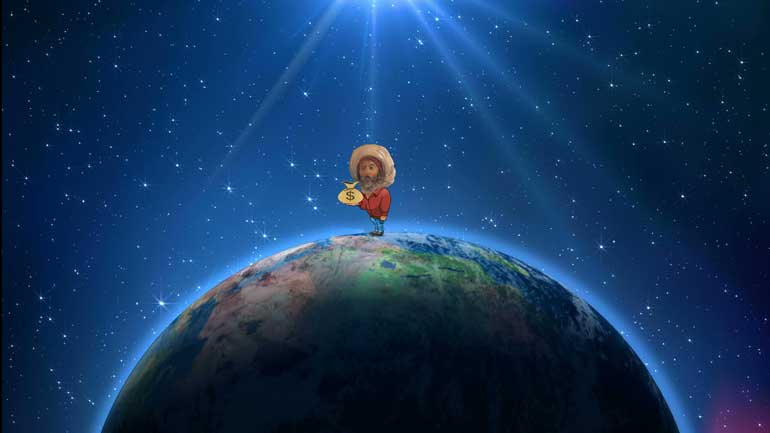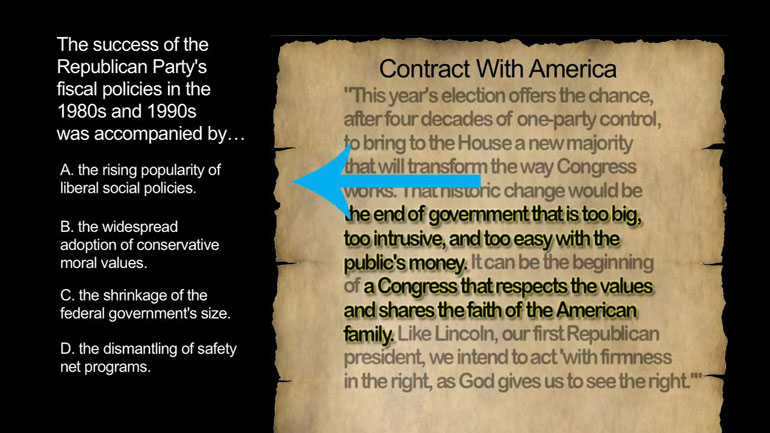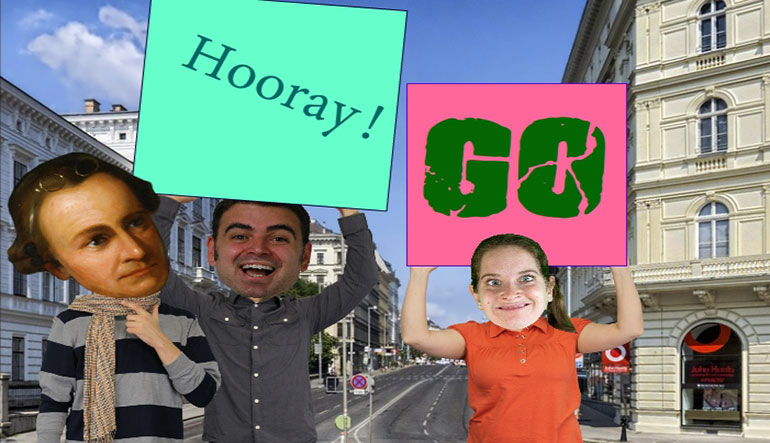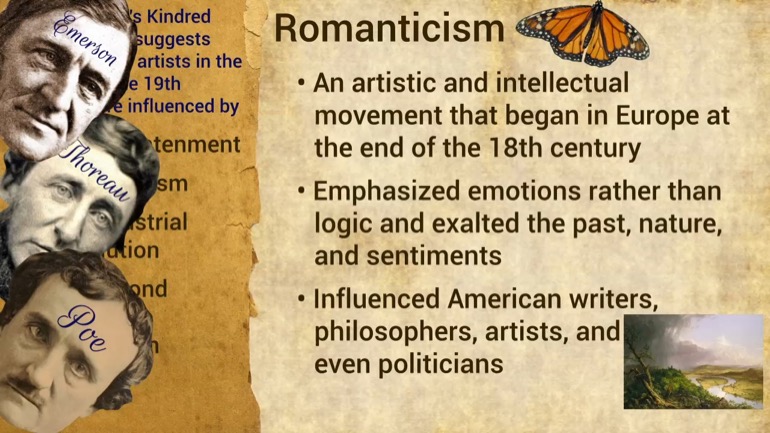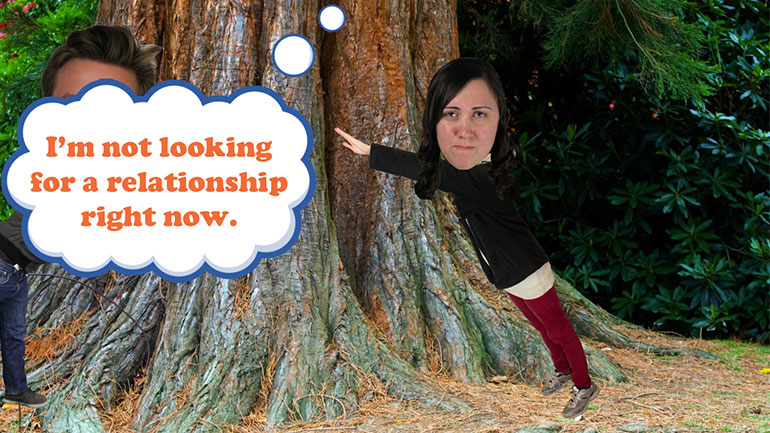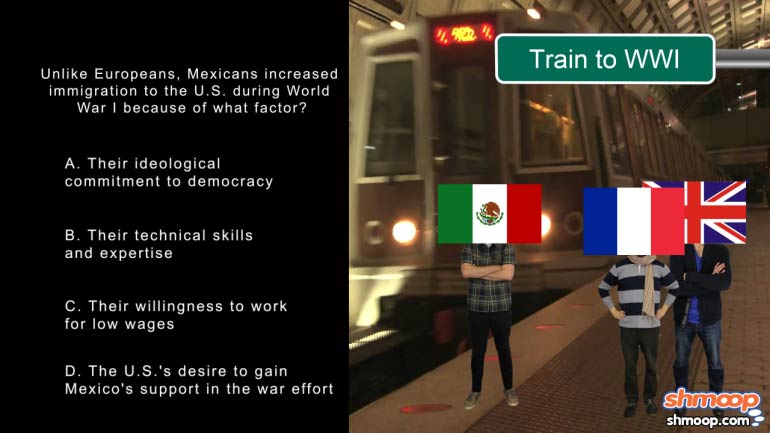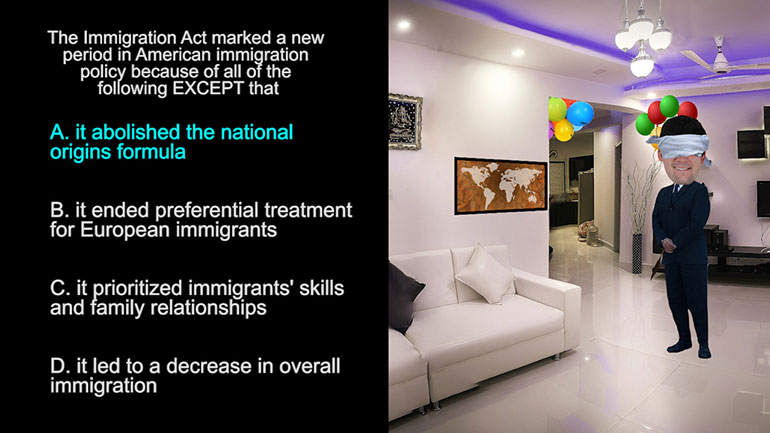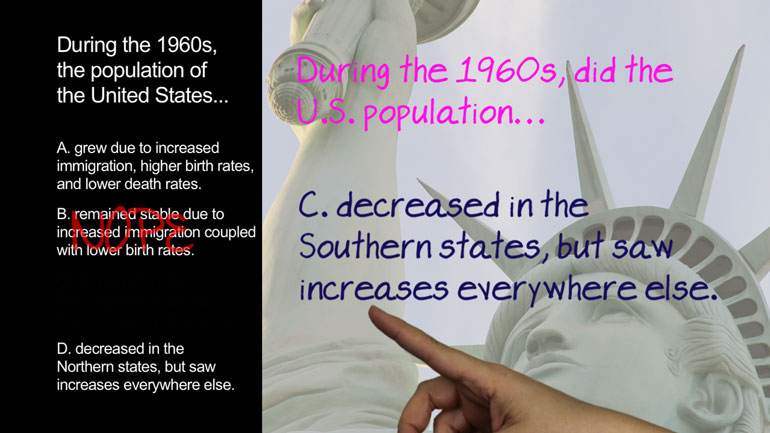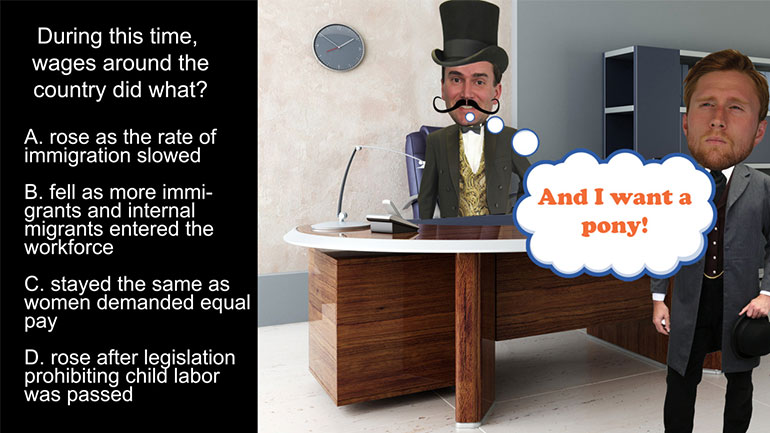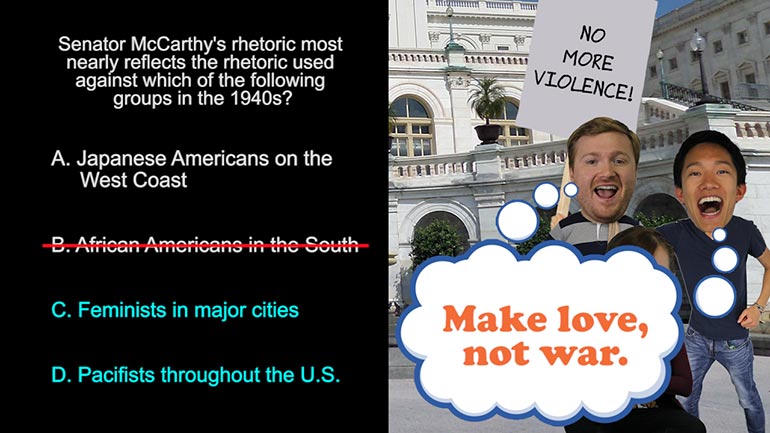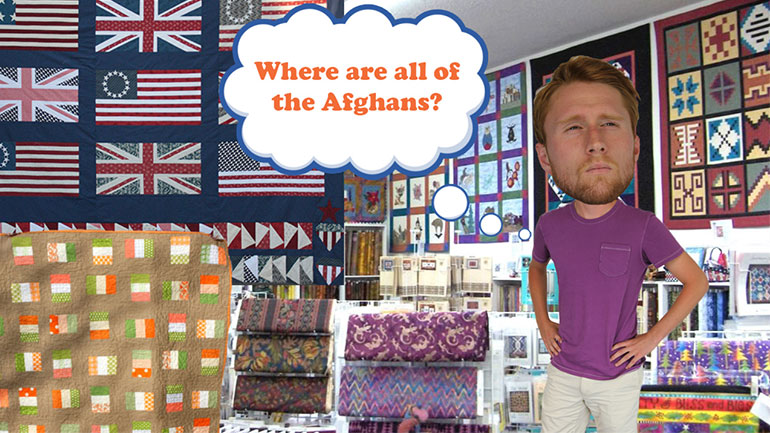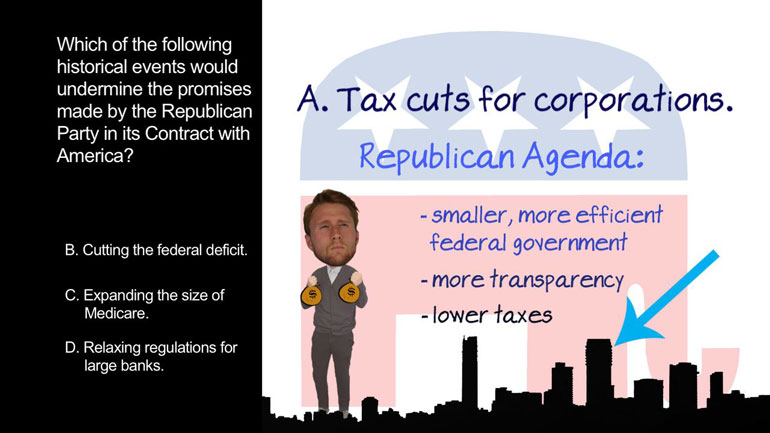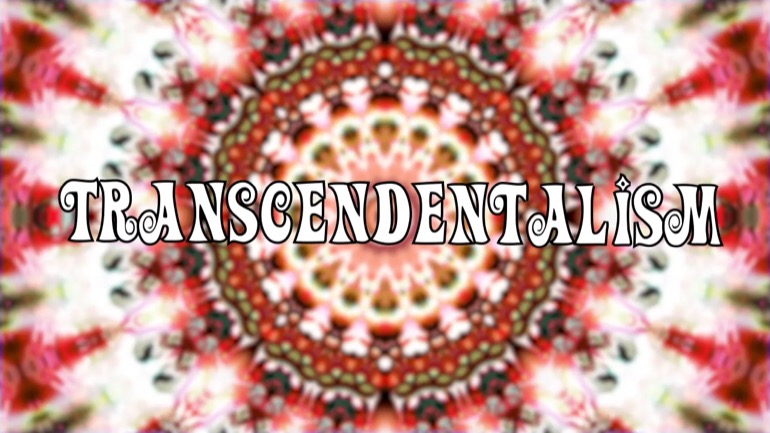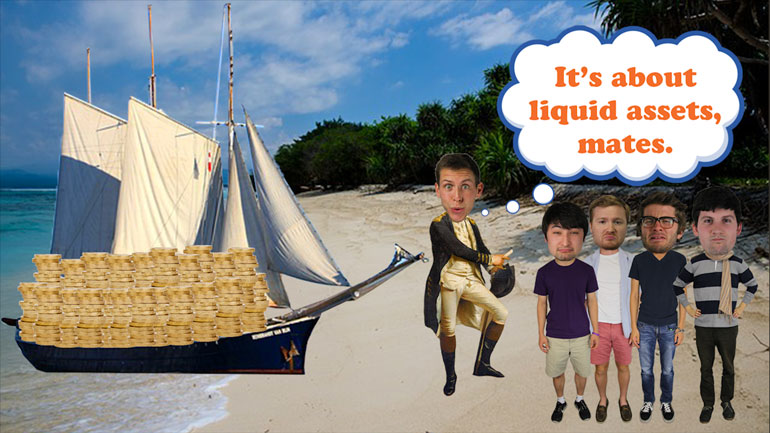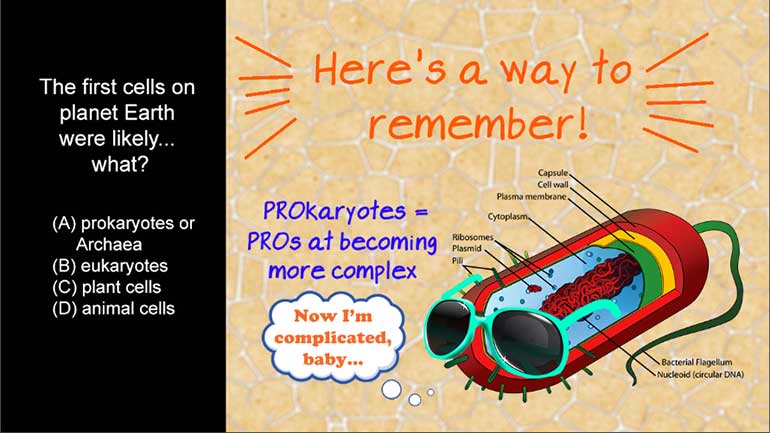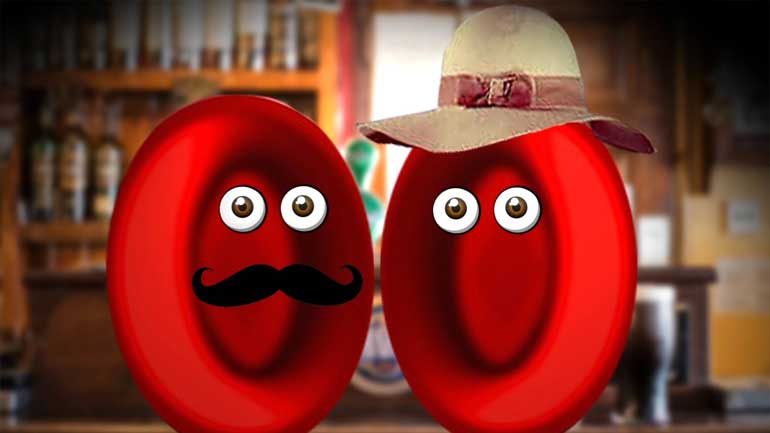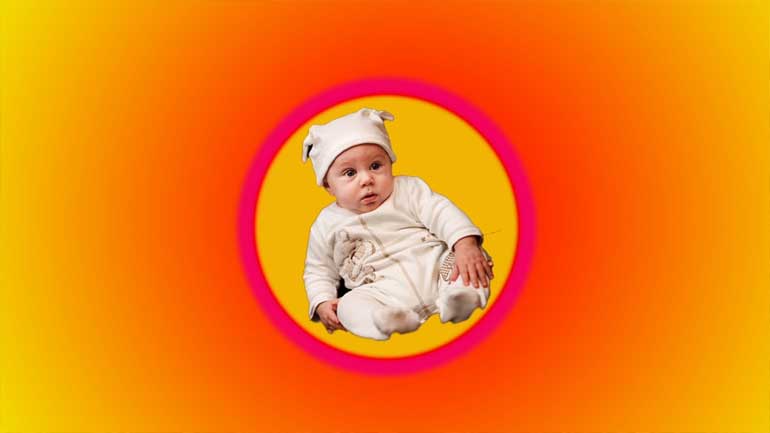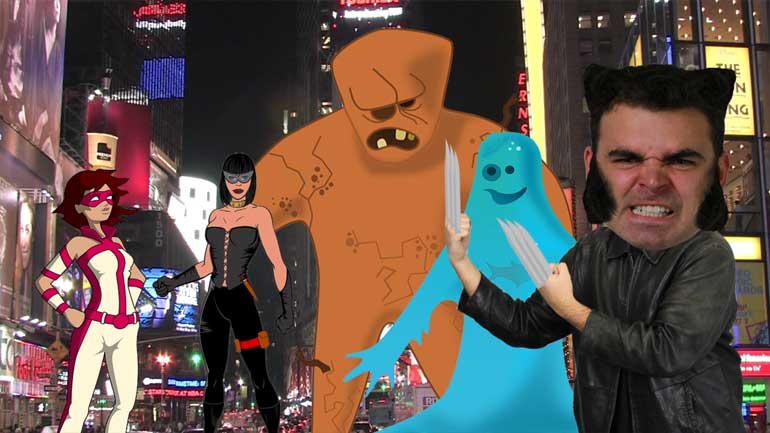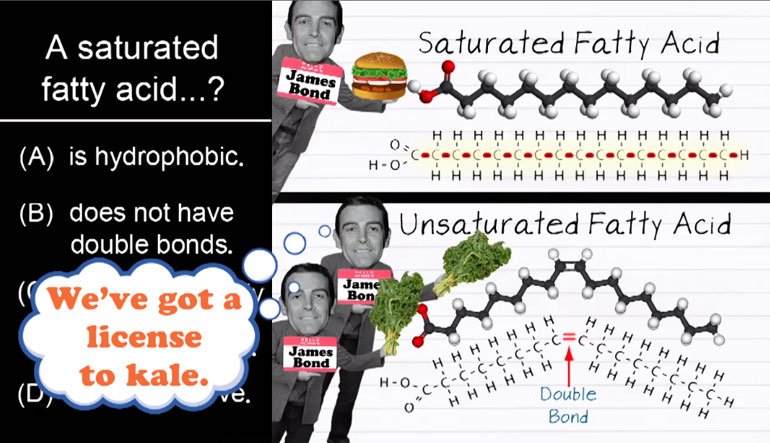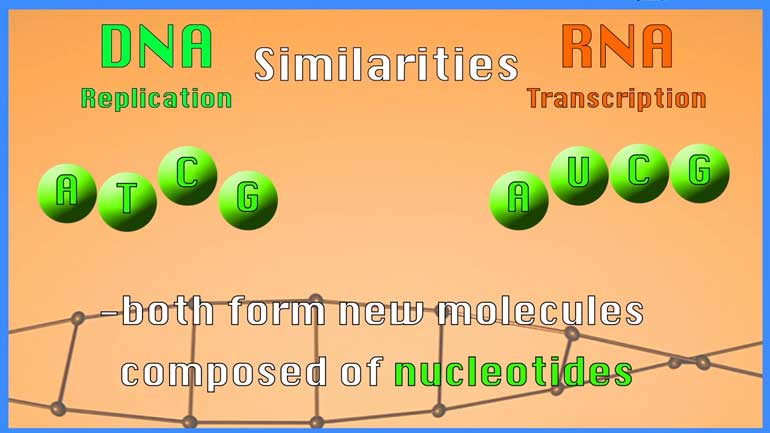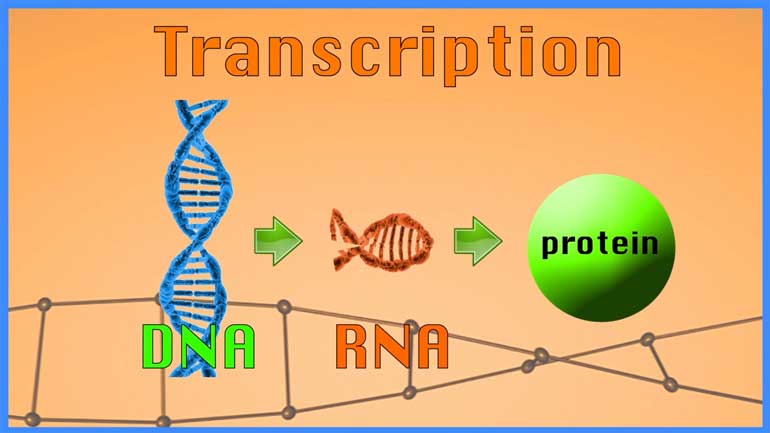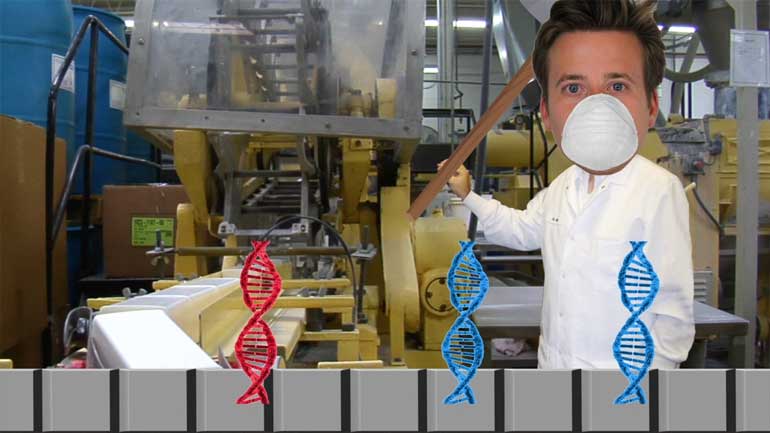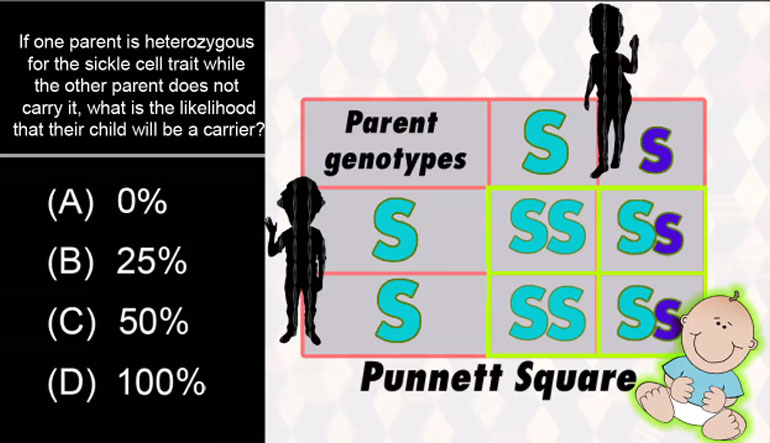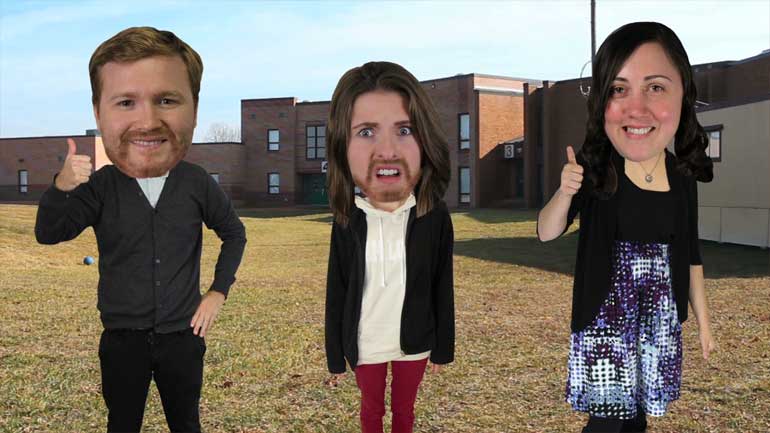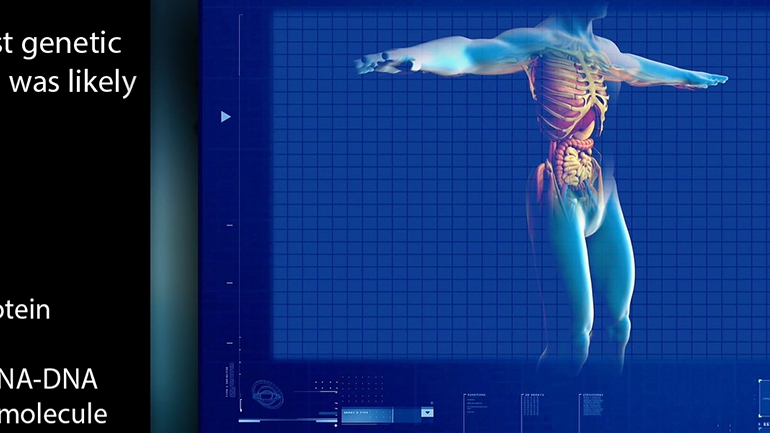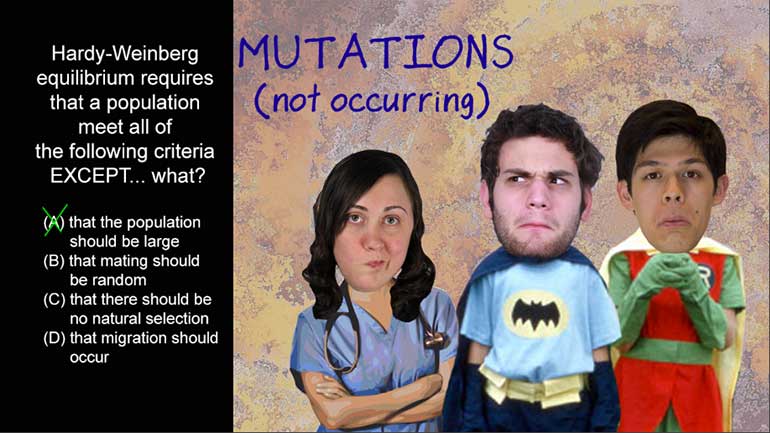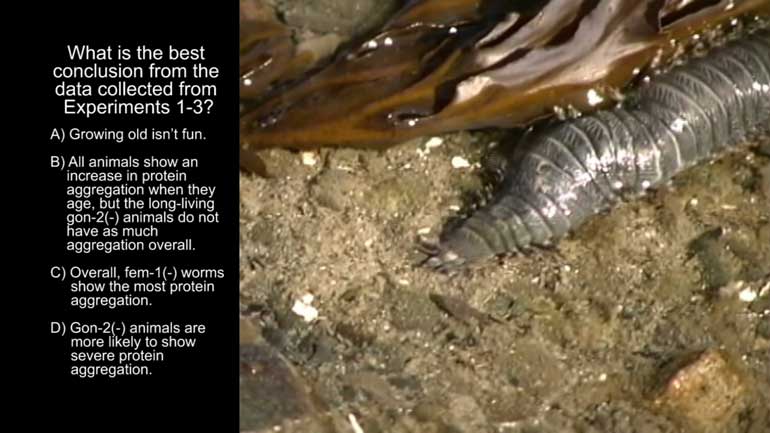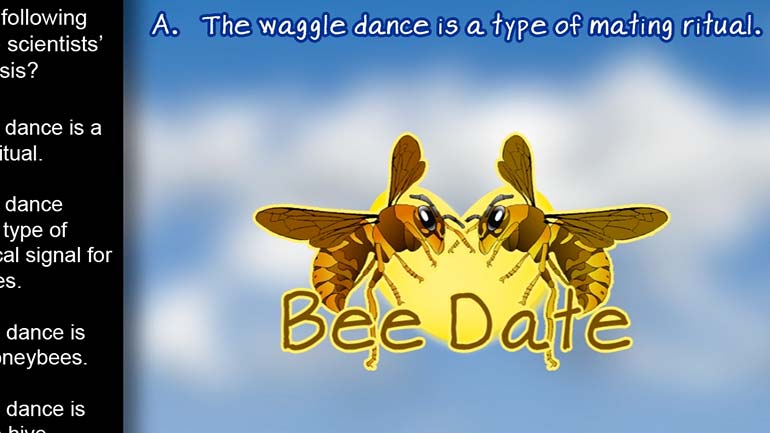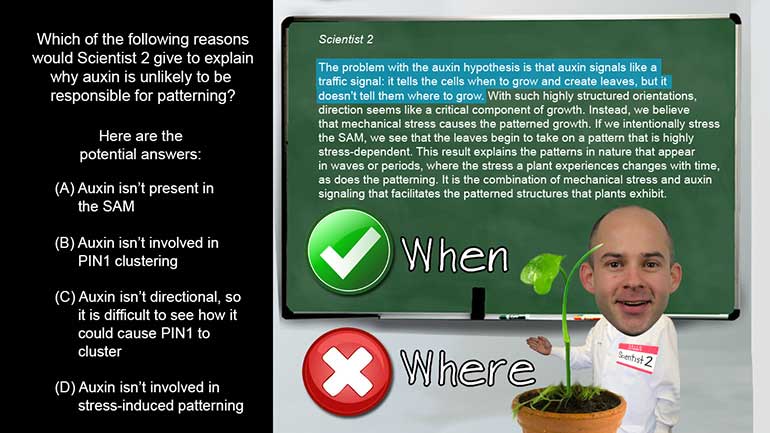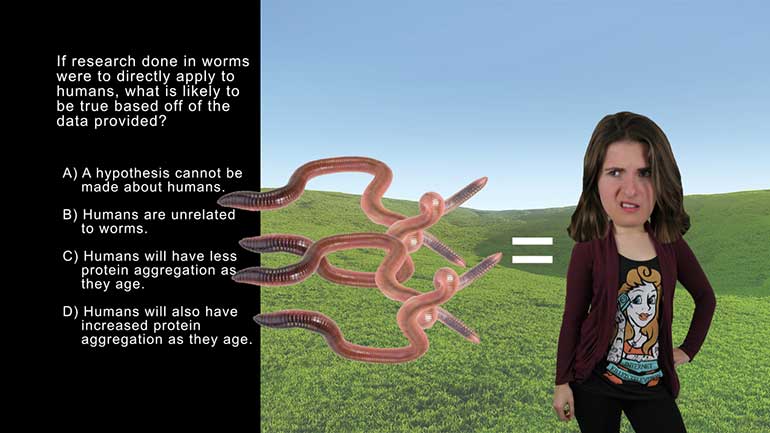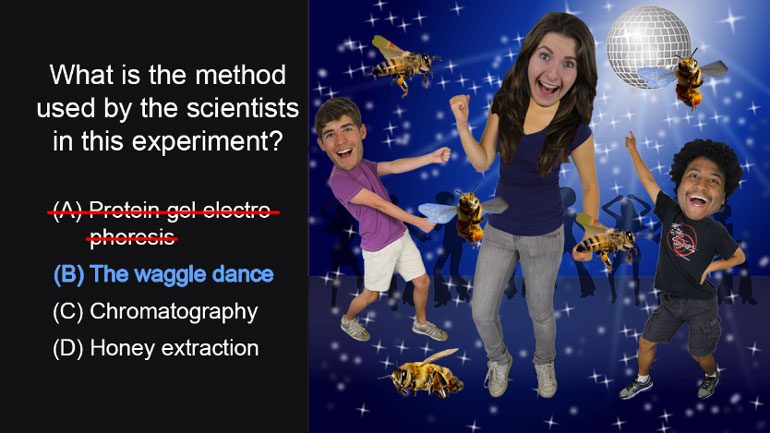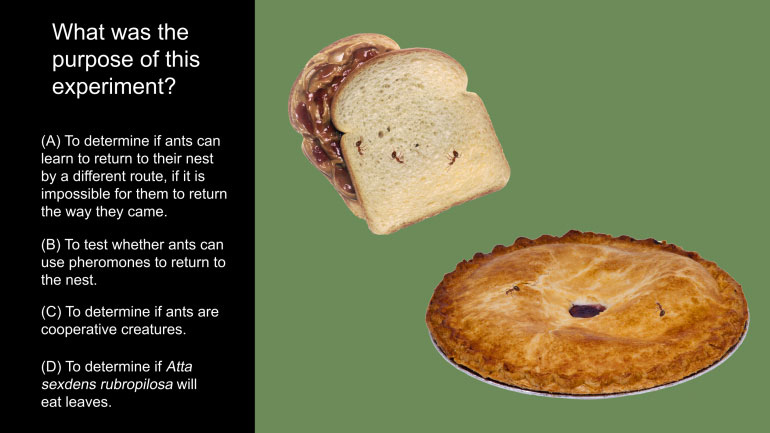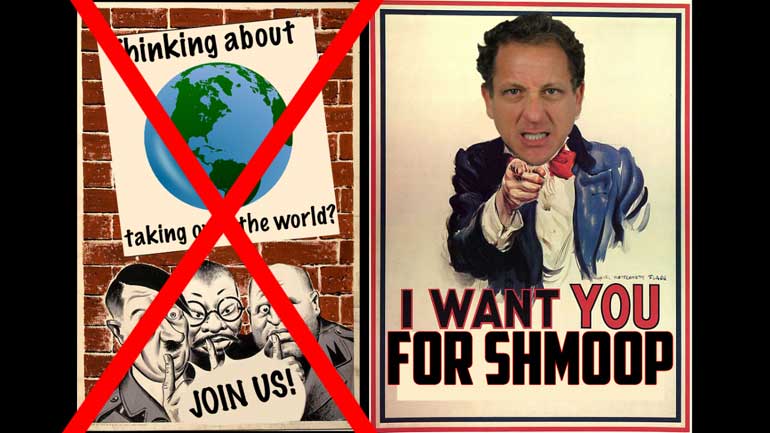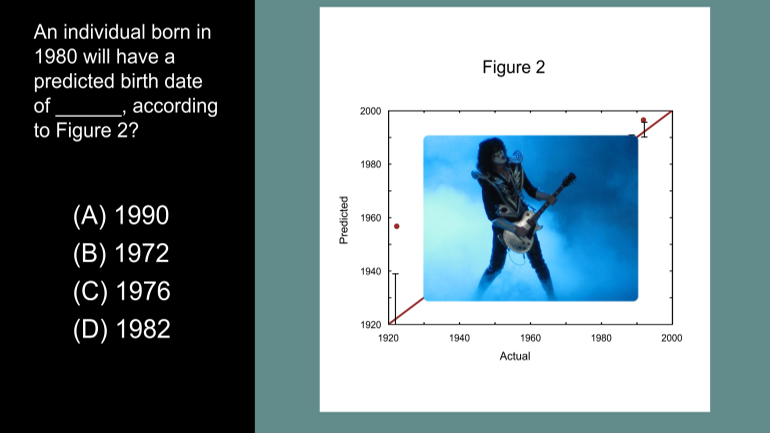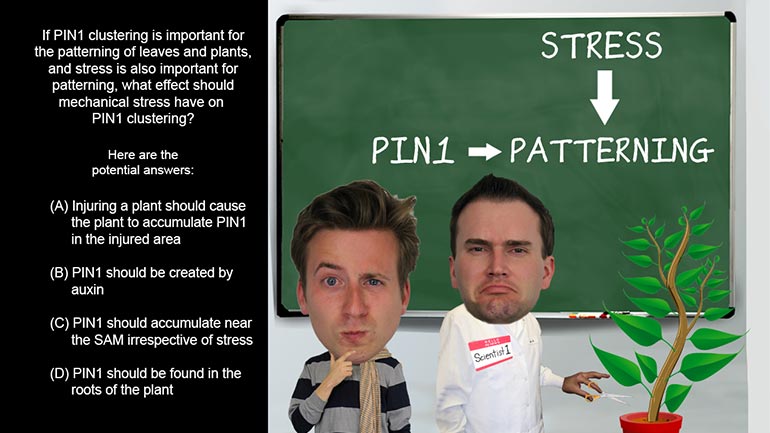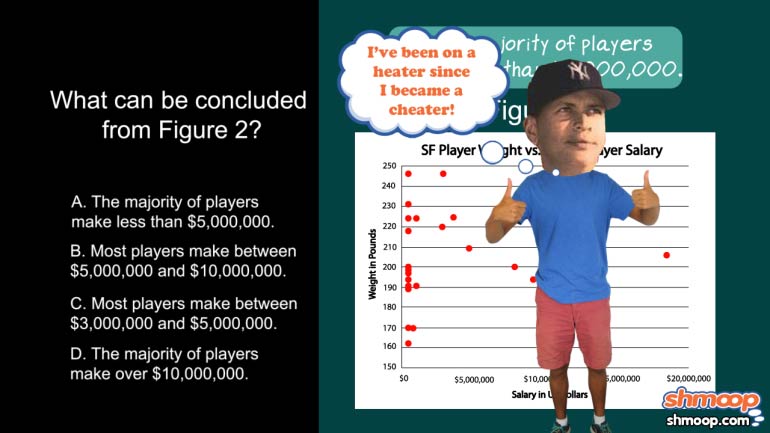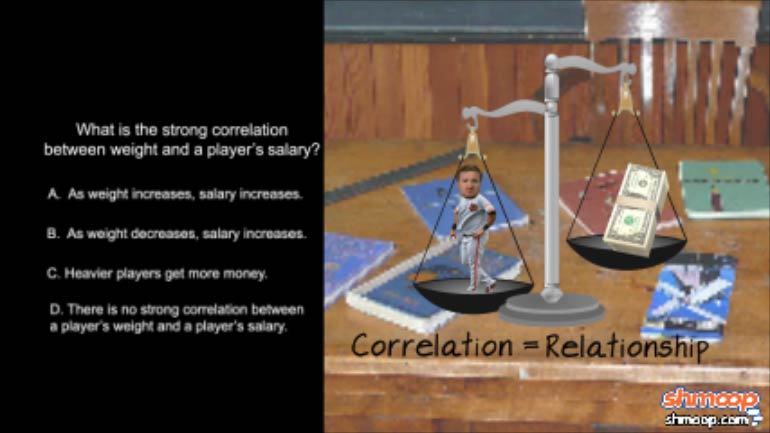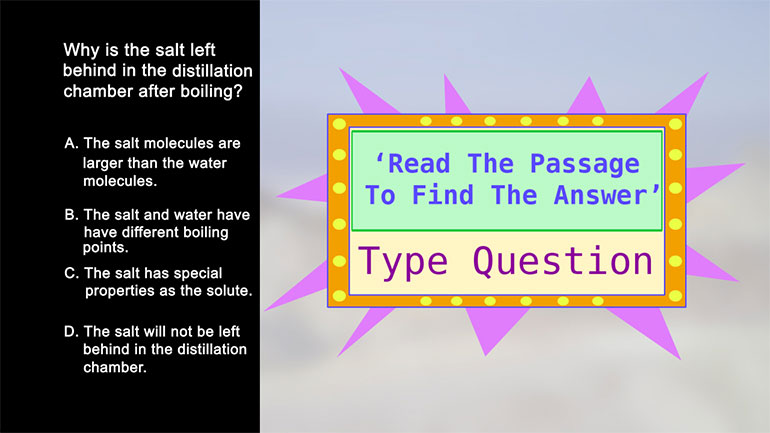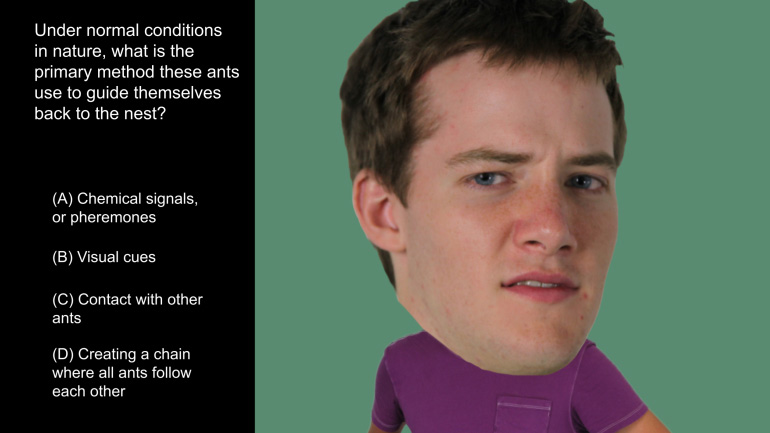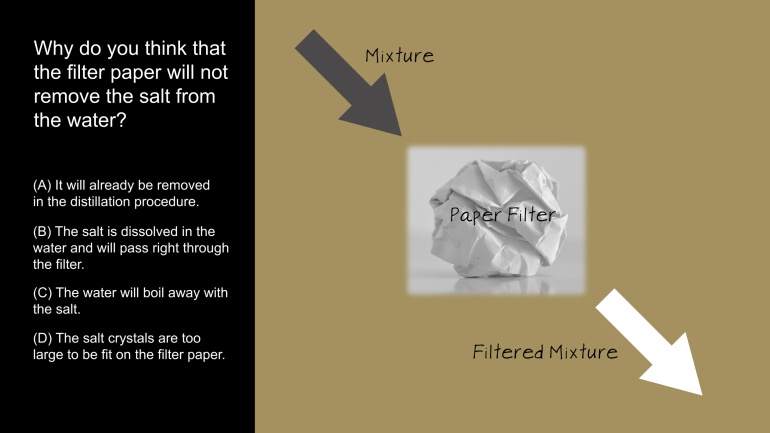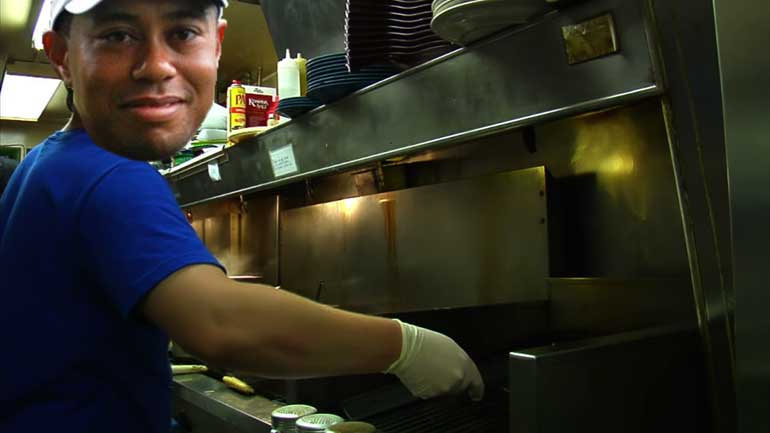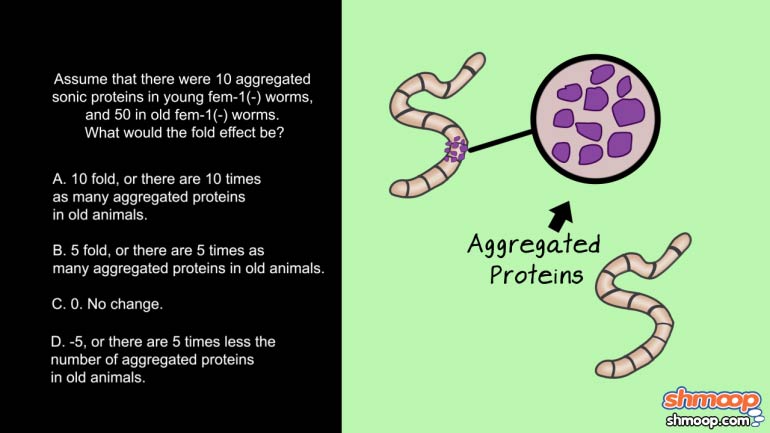ShmoopTube
Where Monty Python meets your 10th grade teacher.
Search Thousands of Shmoop Videos
Texas EOC Videos 540 videos
AP U.S. History 1.1 Period 5: 1848-1877. Which of the following groups would be most likely to support the idea of Manifest Destiny?
In the 1950s and 60s, people weren't just expressing their feelings toward the government—they were singing them, too. (Think Crosby, Stills, Nas...
Deal or no deal? FDR's New Deal provided hundreds of thousands of jobs in the public sector to bring the economy out of the Great Depression. It wa...
Jazz Dance/Harlem Renaissance 1302 Views
Share It!
Description:
Jazz, dance, and the Harlem Renaissance—three things Shmoop can really get behind.
Transcript
- 00:08
Jazz, Dance and the Harlem Renaissance.
- 00:11
Blacks in this country haven't always had the easiest time.
- 00:15
In fact... we're going to go with... they've never had the easiest time.
- 00:22
However, things are a lot better than they used to be...
- 00:24
... and one of the things that has really helped to define the community culturally... is music.
Full Transcript
- 00:30
In the 1920's and 30's, they broke through with a new musical style that doesn't have
- 00:35
quite so many negative connotations.
- 00:38
We're talking about jazz.
- 00:41
In fact, we're talking very excitedly about it.
- 00:48
Guess you could say we're jazzed about jazz.
- 00:53
The songs themselves, as well as the dances that arose from them...
- 00:55
...have always been closely associated with black culture.
- 00:59
Not all jazz musicians were black, but all of the early ones were.
- 01:04
The genre was kick-started in New Orleans...
- 01:06
...with all black musicians and audiences...
- 01:08
...and the music was mostly improvisational.
- 01:17
What set jazz apart from other musical styles of the period was its syncopated rhythm...
- 01:27
...the blend of big brass instruments with traditional African music...
- 01:32
...and the "scatting."
- 01:34
Scatting is improvisational singing, where you're not necessarily singing real words.
- 01:39
Something like this: <<DS scats poorly.>> Okay, this is why we leave scatting to the professionals.
- 01:52
Of course, like just about everything in black history, jazz music was not without controversy.
- 02:00
Various groups boycotted the music, and some created movements against it...
- 02:04
...calling it "the devil's music."
- 02:06
Obviously not true, although it can get hotter than H-E-double hockey sticks in New Orleans.
- 02:12
When Prohibition started, speakeasies allowed for jazz to be played in places where it was
- 02:17
otherwise banned.
- 02:18
These speakeasies were basically bars where blacks and whites were allowed to mix and mingle.
- 02:23
Pretty enlightened for establishments that were generally quite... poorly lit.
- 02:30
While blacks were making headway in the South...
- 02:32
...there was another cultural movement taking place up north in New York...
- 02:35
the Harlem Renaissance.
- 02:38
So... just imagine if Michelangelo and Da Vinci worked out of a studio on 126th Street.
- 02:49
The Harlem Renaissance featured a major emphasis on both art and music.
- 02:54
The Black Rights advocates of the time went to great lengths to circulate positive ideals
- 02:59
and views of black Americans.
- 03:01
They tried to show any doubters that African Americans
- 03:05
could be just as creative as anyone else.
- 03:09
This went a long way to accomplishing their goal.
- 03:12
People like Bing Crosby... white... and Lena Horne... black...
- 03:16
became famous during the Harlem Renaissance.
- 03:19
Black literature and poetry from artists such as Langston Hughes were published in black
- 03:23
journals and magazines...
- 03:25
...and worked wonders at giving black culture its day in the sun.
- 03:30
Of course, it wasn't all rainbows and ponies.
- 03:32
All this new exposure and success for the black community
- 03:35
angered and outraged some whites...
- 03:38
...and people rioted and formed lynch mobs.
- 03:42
A lynching, if you didn't know, is where they hang you from a tree.
- 03:47
It wasn't an easy road to travel, but it was an important one.
- 03:50
While the fight is a long way from over...
- 03:52
... blacks have certainly opened the eyes... and ears...
- 03:54
of many people who didn't always view them as equals.
Related Videos
Ever heard of a "living document"? They eat and breathe just like the rest of us! They even walk around on their own two legs. Okay, fine—maybe t...
If the Puritans had gotten their way, religion would play a much larger role in lawmaking these days. Want to know more? Watch the video for all th...
What happened between the creation of the Articles of Confederation and the ratification of the current U.S. Constitution? This video analyzes the...
The Modernists thought the world had a lot of problems, and they were intent on fixing them—or at least talking about fixing them. Unfortunately,...
This video explains Federalism and the quest for a fair balance between state and national power. It covers the progression and compromises of Fede...
